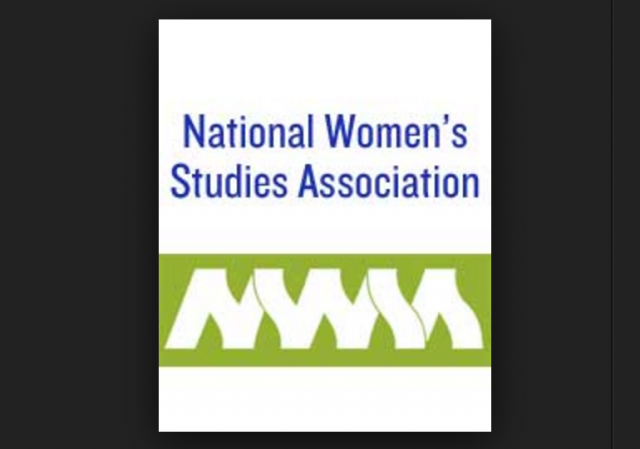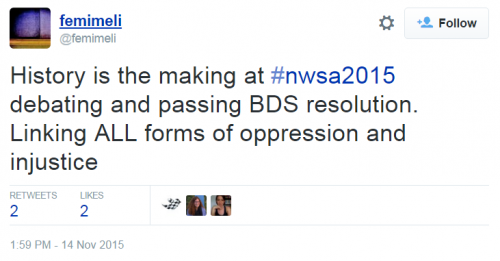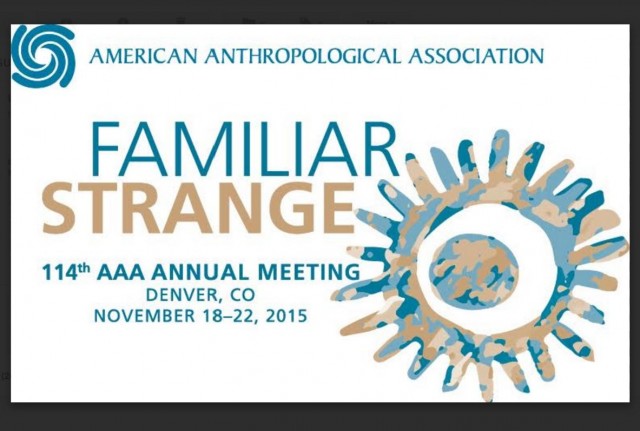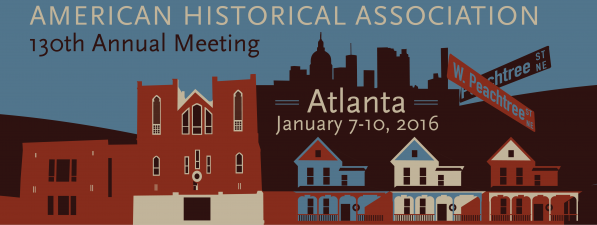ALERT: Faculty Association anti-Israel Boycott season has started
Voting now at National Women’s Studies Association, and other groups are voting soon.

The academic year in progress features several Boycott, Divestment, and Sanctions (BDS) resolutions to boycott Israeli universities by major academic professional organizations, as well as preparatory boycott activity to lead up to votes in future years.
Here is the schedule, in chronological order, based upon what we now know:
1. National Women’s Studies Association (Boycott Resolution Voting Now through Nov. 25)
2. American Anthropological Association (Denver, November 20)(Boycott Resolution Vote)
3. Middle East Studies Association (Denver, November 21-24, 2015)(Boycott Activity)
4. American Historical Association (Atlanta, January 7-10, 2016)(Boycott Resolution Vote)
5. Modern Language Association (Austin, TX, January 7-10, 2016)(Boycott Activity)
Each of these boycott resolutions adopts the general PACBI dictated BDS guidelines.
1. National Women’s Studies Association (Boycott Resolution Voting Now through Nov. 25)
While these resolutions purport to focus only on institutions, rather than individuals, this distinction is empty in practice. Such resolutions also run afoul of the American Association of University Professors (AAUP) guidelines for academic freedom. The American Studies Association, which adopted a boycott resolution in 2013 ran into legal troubles and backed down after challenges.
The first resolution will be the National Women’s Studies Association (NWSA) which met this weekend (November 13-15) in Milwaukee.
While we have not been able to confirm all the details yet, it appears that the BDS resolution was supported at the annual meeting:
The passage at the annual meeting merely sends the resolution on for voting by the full membership, electronically, to begin Monday, November 16, 2015 (tomorrow), and to last for 30 days (this time period is not yet confirmed).
(UPDATE – Confirmed that electronic voting by members starts November 16 and ends November 25)
NWSA has followed a well-traveled path in which a boycott resolution was several years in the making, and in which the groundwork for the resolution proceeded in steps. We will explain this in depth because it is the model used at organizations such as the American Studies Association where first anti-Israel boycotters took over key committees and the national board, then commissioned their own biased studies and information events, then piggybacked on all that for boycott resolution call.
Last year, NWSA, after its annual meeting in San Juan, Puerto Rico, released a statement endorsing BDS.
The statement began with recognizing the “endemic racialized state and extrajudicial violence within the U.S. and its borders”, and noted that the conference took place in Puerto Rico “an occupied territory where sovereignty struggles continue”. This, of course, was neither a prelude to a call for boycotting the United States of America, nor was it a recognition of the potential benefits in conducting conferences in such ‘occupied territories’, instead, naturally, “animated by the recognition that systems of oppression are interlaced and must be…addressed together”, the NWSA “found a strong show of support” among attendees for the “(BDS) movement and for including injustices in Palestine among the issues we study and teach about”.
What was essentially an invitation to propose a formal BDS resolution this year, was dutifully taken up by Rabab Abdulhadi who teaches “Race and Resistance Studies” at the College of Ethnic Studies at San Francisco State University and is involved with that school’s Arab and Muslim Ethnicities and Diasporas Initiative. Prof. Abdulhadi has a long history of involvement with the General Union of Palestine Studies at SFSU (which explicitly supports the recent ‘knife intifada’ in which Palestinians stab random Israeli civilians) and has been embroiled in several controversies and spats in which she was accused of cozying up to terrorism, supporting hijacker Leila Khaled and calling her an “icon”, and using public funds to further her own political ends (including meetings with two convicted terrorists) on a trip to the Middle East (see Abdulhadi’s response here).
Abdulhadi’s involvement with BDS goes back at least to 2004. In 2011 she was part of an 11 member group of “Indigenous Women of Color feminists” , a “delegation of 11 scholars, activists, and artists ” which traveled to Israel and the Palestinian territories (the group referred to it as a “visit to Palestine”, even though it included Haifa).
The delegation includes “pathbreaking authors and activists: Rabab Abdulhadi, Ayoka Chenzira, Angela Y. Davis, Gina Dent, Melissa Garcia, Anna Romina Guevarra, Beverly Guy-Sheftall, Premilla Nadasen, Barbara Ransby, Chandra Talpade Mohanty, Waziyatawin”
Upon their returned they released a joint statement describing their experience of evil Zionists and the ominous Israeli settlements “perched in the hills” and how Palestine is one giant extensive prison; together with an obligatory fact or two about Palestinian women and “Queers for BDS”, and a description of the trajectory of Israel’s protective barrier (referred to as the “ubiquitous apartheid wall”) and the difficulties some Palestinians have in entering Israel, all without any context whatsoever. This is followed by a call for BDS “as a condition for just and equitable social relations” (apparently King’s injustice quote “Injustice anywhere is a threat to justice everywhere”, so beloved by the BDS crowd, doesn’t apply when we’re talking about ‘social relations’ with the Israelis) .
Now, 5 years later, Abdulhabi is answering her own call with the resolution before the NWSA.
The resolution speaks of interconnected systemic forms of oppressions, such that “we cannot overlook the injustice and violence, including sexual and gender-based violence” perpetuated against Palestinians (no explanation of how this violence is sexual or ‘gender-based’ is actually given) and declares itself “an act of transnational solidarity aimed at social transformation for a better world”.
While the resolution reads like a boilerplate, copy-pasted PACBI boycott, its operative component is rather vague:
“Therefore, in keeping with these principles and the strong consensus of the majority of our 2014 conference participants, let be it resolved that the National Women’s Studies Association (NWSA) endorses the 2005 call by Palestinian civil society for Boycott, Divestment, and Sanctions (BDS) of economic, military and cultural entities and projects sponsored by the state of Israel. ..”
The resolution is then followed by the standard PACBI-issued Frequently Asked Questions.
Some of the more interesting ones include:
“2. Does the boycott resolution unfairly single out Israel, after all there are many unjust states in the world?
…Because the U.S. is Israel’s principal international supporter, we are directly implicated in the destruction of Palestinian society. Thus, doing nothing implies complicity in the perpetuation of this grave injustice….
Presumably, then, the grounds for boycotting Israel are that we as Americans are responsible as tax payers for what Israel does. Of course this says nothing about boycotting the “principle international supporter” itself (i.e. the U.S.).
Neither does the NWSA draw the conclusion that those outside the U.S. who are not “directly implicated in the destruction of Palestinian society” should abstain from boycotting Israel, nor of course is there any concern in being complicit in the destruction of Israeli society. It might be worth noting that the U.S. is also a principle international supporter of Iraq, Egypt, Saudi Arabia, Turkey, and, of course, the Palestinian Authority.
But it gets better…
“3. Isn’t a boycott of Israel discriminatory and even anti-Semitic?
The practices of discrimination, occupation, ethnic cleansing, illegal settlement and territorial expansion are not based on Judaism but are rather enshrined in the political philosophy of Greater Israel that has no basis in international law, history or Jewish religious or cultural tradition. Indeed, what is really anti-Semitic is the attempt to identify all Jews with a philosophy that many find abhorrent to the traditions of social justice and universality that Judaism enshrines.
This answer is rather strange. Not only does the NWSA take itself to be an authority in international law, but apparently also in Jewish Theology!
This point is aptly made in a blog post by Prof. Janet Freedman of Brandeis University, who is bravely combating the resolution against all odds. Professor Freedman writes:
“I am angry to have my Judaism defined for me and to be told by NWSA what is “really anti-Semitic…
“I cannot allow the words of this resolution and these FAQs to tell me whether a “good” Jew is one who sides with those who see Israel as a demonic entity or to imply that if I do not, I do not deserve to be heard, to be seen, perhaps even to live.
“I am not among those who feel that they can be Jewish without supporting the existence of the state of Israel. I know too many people who would have no home without that home.
“I am shocked and offended that an academic organization that prides itself on “difficult dialogue” would adopt any sort of boycott of ideas.”
Moving along…
“4. Why is there no mention of Palestinian violence?
The resolution is a specific response to a nonviolent grassroots initiative by Palestinian civil society. History shows us that oppressed people will resist their oppression (and are legitimized by international law to defend themselves against the brutalities of colonialism and occupation). Palestinians have responded to the Israeli Occupation with a wide range of strategies, including violent and nonviolent means. Our support for BDS would pressure Israel to stop its violations of Palestinian rights and minimize the need of the Palestinian people to turn to violent resistance as a last resort against their colonization.
This one is absolutely risible. Notice that there is no condemnation of violence. The NWSA condones Palestinian violence in this resolution, even if it prefers that it only be turned to as a last resort. So the NWSA is planning to go on record supporting violence against Israelis.
“5. Why an academic boycott?
All major Israeli universities are governmental institutions that benefit directly and materially from a close relationship with the security-military establishment. Some institutions have been directly involved in providing the ideological justification and technical means for the continuation and maintenance of the occupation. Furthermore, not a single Israeli academic institution has petitioned the Israeli government to protect Palestinian rights to education or to cease interference with and destruction of Palestinian schools and colleges.
“All major universities” are governmental institutions, what about the others (the private ones, for example)? Why are they being boycotted as well? Is all involvement with the security establishment condemned? What is this “ideological justification and technical means” that NWSA refers to and how does this justify a boycott?
Lastly, the NWSA wants Israeli academic institutions to “petition the Israeli government” on these matters. When do universities ever do this? The expectation that universities take political stands for or against their governments tells you plenty about how BDS advocates in general, and the NWSA in particular, view the role of universities in fostering true academic debate.
In any case, even if they did petition the government, are we really to believe that BDS would cease its call? That’s not what the call says! (In any case, as discussed below, even when Israeli academics do in fact do this, as with the Israeli Anthropological Association, it makes no difference).
6. Won’t a boycott of Israel merely isolate and weaken those individuals and groups within Israel that promote peace and dialogue with Palestinians? Should we not rather give our positive support to them instead?
The boycott proposal aims specifically at institutions, not at individuals, even those most privileged by the Occupation. While some Israeli Jews genuinely oppose the occupation and endorse BDS, Israeli society as a whole has rejected the practical steps that could lead to a just and lasting solution to the conflict. Decades of refraining from pressuring Israel have resulted in the expansion of Israeli Jewish settlements on Palestinian land as well as deterioration of Palestinian living conditions. Endorsing BDS does not preclude supporting Israeli individuals and groups who advocate justice and peace. We embrace those individuals and groups and encourage exchanges and debates. While a successful boycott may directly impact the material conditions and facilities of Israeli academics, Jewish and Palestinian Arab, it does not seek to silence, censor, or deny rights of travel to any scholar, nor to dictate the beliefs or opinions they wish to express. BDS challenges the practice of institutions and their representatives, not individual scholars, students or artists.
It’s amazing how comfortable the NWSA is with referring to Israeli society “as a whole”, even whilst admitting that “some Israeli Jews genuinely oppose occupation” (notice though that the qualification is “and endorse BDS”).
BDS doesn’t want to “dictate the beliefs” of Israeli scholars, but it wants Israeli scholars in the institutions being boycotted to express very specific beliefs and of course to dictate them as institutional policy to other scholars in those institutions who may not share those beliefs.
2. American Anthropological Association (Denver, November 20)(Boycott Resolution Vote)
The NWSA meeting will be followed by the vote at the annual American Anthropological Association (AAA) in Denver on November 20th.
See our previous coverage of the Anthropology boycott activity leading up to this vote.
Last year at the AAA meeting, a vote blocking BDS was roundly defeated. It is followed this year by a vote whether to affirm an academic boycott.
There has been an aggressive campaign on the part of the boycotters to build support for this measure, along with cheerleading in several Anthropology blogs, chief among them: Savage Minds and Allegra Lab. The boycott is also being backed by the misnamed “Jewish Voices for Peace” and recently by the Green Party of the United States. Additionally a group named Anthropologists for Justice in Palestine has been formed to help promote the boycott.
In opposition is a group called Anthropologists for Dialogue on Israel/Palestine, which together with the Israeli Anthropological Association have been the chief dissenters in this campaign. In fact, the IAA released this statement in June, in which it called on the Israeli government to “end the siege of Gaza” and “end the occupation” and called on other anthropologists to support research and dialogue in the region. Whether it is appropriate for the IAA to issue political calls aside, it seems that the IAA’s call to end the occupation hasn’t moved BDS supporters, giving the lie to BDS’ claim that the boycott is justified because Israeli institutions have not put forth such calls.
The pro-boycott camp is also aided by some Israeli Anthropologists. A letter sent by Anthropologists in Israel opposing the IAA’s position was circulated in September 2014. Another was sent following the IAA statement in July 2015. Additionally, some Israeli ex-pat Anthropologists have advocated strongly for BDS, sometimes on grounds that appear to be personal vendettas.
Each side has proposed a resolution: one opposing BDS, but still calling Israel’s occupation of the Palestinian territories an impediment to peace (Resolution 1) and one in favor of boycott (Resolution 2).
While the AAA claims neutrality, the momentum is clearly on the boycotters’ side.
AAA dispatched a Task Force this past summer to Israel and the Palestinian territories which returned a hostile, one-sided report hinting strongly at the importance of boycotting Israel. AAA invokes its scientific expertise to pronounce Israel a ‘settler-colonialist’ country, its moral expertise to find that action is morally required, and its Anthropological expertise to decide that one side in the conflict is not really a side (and the conflict is not really a conflict). The irony of Anthropologists of all people, the discipline that has most promoted moral-relativism and the ability of foreign scientists to observe the goings on of other peoples dispassionately, would boycott one side of a conflict on staunch, yet perversely inverted, moral grounds is lost upon them.
AAA’s claims of neutrality are further in doubt by the fact that, AAA’s Facebook page ‘likes’ the page of Anthropologists for Justice in Palestine, but not that of the Anthropologists for Dialogue, who are ignored and attacked by their colleagues as disingenuous.
3. Middle East Studies Association (MESA) (Denver, November 21-24, 2015)(Boycott Sessions)
MESA is a hotbed of anti-Israel activity. So much so, that a group of Middle East scholars less hostile to Israel (and the United States!) have formed a breakaway association known as the Association for the Study of the Middle East and Africa.
Last year at the MESA meeting a resolution was passed “urging the program committee to provide a forum for discussing boycott-related issues”. We don’t yet know if a boycott resolution will be put forth this year in Denver, but the smart money is betting on yes. In any case, in compliance with this ‘urge’ two BDS related sessions will be held at MESA this year.
The first “Academic Boycott: Histories, Implications, Consequences”, will be chaired by MESA Executive Director Amy Newhall, and will feature Zachary Lockman (NYU), who has also signed the HAW resolution condemning Israel, Lorraine Haricombe, author of a book on Apartheid South Africa, and a plaintiff’s lawyer specializing in discrimination lawsuits. This panel seems to focus on the technical side of implementing BDS.
The more substantive, second panel, however, BDS and Middle East Studies: Historical, Political and Legal Dimensions features three panelists and a moderator, all of whom support BDS.
Based on what we are hearing, there likely will not be an actual boycott vote this year, but as at other organizations, the groundwork is being laid. We will keep monitoring.
4. American Historical Association (Atlanta, January 7-10, 2016)(Boycott Resolution Vote)
Last year, the AHA rejected two anti-Israel resolutions. The votes failed in large part due to a technicality (a missed deadline).
From what we are hearing, AHA does not have a schedule boycott vote this year. Instead, “Historians Against the War”, a far-left, anti-Israel outfit has again put forth a resolution strongly condemning Israel for violating the academic freedom of Palestinian students in the West Bank and Gaza, as well as the movement of other scholars in and out of the territories, and other issues relating to the “Right to Education”.
Last year’s resolution was hyperbolic and factually inaccurate. This year’s resolution has toned down the accusation of Israel’s “arbitrarily limiting” travel and entry, but leaves the accusations substantially the same.
The resolution also calls out Israel for “bombar[ding] fourteen institutions of higher learning in Gaza”, during last summer’s war. It is interesting that Israel’s critics, and BDS supporters in particular, are more than keen to establish the complicity of Israeli universities in various Israeli “crimes”, but at the same time are quick to absolve all Palestinian universities, even when they are used for military purposes (if that is the correct term for Hamas terrorism and/or war crimes) and may be genuine military targets according to International Law.
AHA is an organization of Historians, not political hacks and journalists. Even journalists, however, are supposed to investigate the factual claims of allegations they make and are expected to supply the context and shed light, not distortions, on their statements. That said, if the AHA were to resort to sensationalist measures and pass this resolution (without so much as an investigation), this will surely be step one towards a full blown boycott measure to be based upon it at a future meeting.
5. Modern Language Association (Austin, TX, January 7-10, 2016)(Boycott Sessions)
Last year, the Modern Language Association (MLA) voted to table any discussion of BDS till 2017.
That said, a group has been formed, MLA for Justice in Palestine, that has organized with the intention of bringing the boycott to the floor of the MLA as soon as possible. While the tabling vote from last year would suggest that no vote can be brought this year, several MLA members expect there to be an attempt to bring it to a vote sooner. In any case, the group plans on debating the issue at this year’s meeting.
This group attempted to fabricate momentum for BDS by citing the support of various MLA subdivisionsin support of a resolution, until they were shot down by Executive Director Rosemary Feal, who stated that such subdivisions “have no authority to speak for the division’s members”.
Stay tuned for more information on MLA.
6. Other Organizations
There have been rumors that the American Sociological Association, which meets in Seattle in August 2016, might have a similar motion. The regional Pacific Division Meeting of the American Philosophical Association to be held in March in San Francisco is said to feature a debate panel on the academic boycott of Israel s as well.
Stay tune for more details on these.
7. What It All Means
As we’ve said before, these resolutions, if passed, would be highly symbolic.
Up to date, boycott resolutions have been limited to fairly marginal professional organizations (African Literature Association, Association for Asian American Studies, Association for Humanist Sociology, Critical Ethnic Studies Association, National Association of Chicana and Chicano Studies, Native American and Indigenous Studies Association, Peace and Justice Studies Association).
When the first semi-significant organization, the American Studies Association, passed the boycott in 2013, it received a very strong pushback from over 250 university presidents and multiple academic associations who rejected the boycott. The NY Times called the ASA a “pariah” after its boycott resolution.
On the other hand, were a sizeable number of such organizations to pass a boycott resolution, this could cascade into something far uglier. That will still not change, however, what was said last week on this blog regarding the AAA resolution:
“Above all else, passing the resolution will establish the AAA as a politically-driven organization at a time when the Humanities and Social Sciences are under extreme pressure from a public which views the educational benefits of such subjects as tainted by radical politics.”
This would be true, not only of the AAA, but of NSWA, MESA and other organizations that might follow suit.
———————-
The author is a graduate student who must write under a pseudonym for fear of retribution from pro-BDS faculty.
 DONATE
DONATE
Donations tax deductible
to the full extent allowed by law.













Comments
They must not be familiar with Isaiah 41:11
“All who rage against you will surely be ashamed and disgraced; those who oppose you will be as nothing and perish.” (NIV)
Isaiah is a dead white male, and a zionist to boot, so SJW automatically reject anything he had to say. Seriously, these people think anyone who takes the Bible seriously is by definition a troglodyte and oppressor whose views are not entitled to a place in civilized discourse.
All of these groups and every single one of their members, regardless of how they vote must be barred from entry to Israel for life. And every one of those groups that has any material involvement in Israel should be charged with terrorism, and all their funding in Israel no matter the amount confiscated and used to help victims of terrorism.